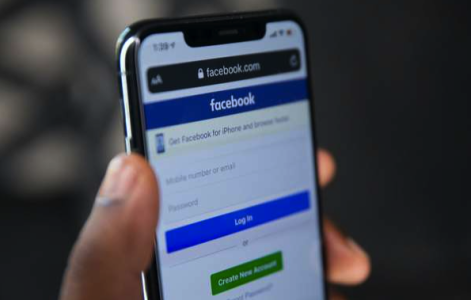From identity theft to social media scams: How scammers are exploiting victims’ data
- Replies 0
Identity theft is becoming more rampant in Australia, with criminals stealing personal information and even using innocent people as scapegoats for their scams.
Shocking new figures from identity and cyber support service IDCARE reveal over 74,000 Australians have already reported being victims of identity theft this year alone.
People like Ben Riddle are embroiled in the disturbing world of impersonation and fraud through no fault of their own.
Ben, a Melbourne-based landscaper, was horrified to discover his identity had been stolen after a ticketing scam, with the fraudster using Ben's name and image across social media to deceive others.

'It was ruining my reputation,' said Ben, who was wrongly accused of scamming people out of concert and sports tickets.
'Friends of friends were messaging, saying: “I couldn't believe when I saw that he was a scammer.”'
How did scammers manage to steal Ben's identity?
It all began when Ben fell victim to a scam in April while attempting to purchase tickets for the Essendon-Collingwood ANZAC Day match.
He sent roughly $300 to an online seller, only to never receive the tickets, leaving Ben to conclude that he had fallen for a scam.
However, Ben didn't realise that the scammers hadn't just swindled him out of his money. In a moment of unfortunate trust, Ben also shared a picture of his driver's license with what he believed to be a legitimate ticket seller.
It didn't take long for him to realise the grim reality—his identity had been stolen. Soon enough, he began noticing multiple accounts on social media using his name and photos.
And what started as an innocent attempt to purchase footy tickets evolved into a six-month-long struggle to restore his reputation.
Despite his efforts to report these fraudulent accounts, the fake profiles using his name continue to thrive on Facebook.
'It's been really hard. There's no way for me to prove publicly that I'm not a scammer,' he said.
How are identities being stolen?
Experts explained that online transactions are a hotspot. Scammers trick victims into handing over personal ID documents and then use the details to impersonate them online.
'The number one type of fraud that people experience is not necessarily the most costly, but the most prevalent was online buying and selling, especially through places like Facebook Marketplace and others,' stated Dr Anthony Morgan, Research Manager at the Australian Institute of Criminology (AIC).
The impacts of identity theft can be severe.
Victims struggle to prove their innocence as fraudulent social media accounts and messages spread. Fake driver's licences enable criminals to open bank accounts, take out loans and make purchases under stolen identities.
Reputational damage leaves many too scared or ashamed to speak out.
'Being a victim of cybercrime can have significant emotional distress on a victim,' warned Dr Morgan.
The frustration experienced by many victims of scams is exacerbated by the limitations Australian authorities face in pursuing cybercriminals—especially those abroad.
This situation is highlighted in the AIC's Cybercrime in Australia 2023 report, which reveals that only around half of the reported cybercrime incidents are actually investigated.
Furthermore, 36 per cent of victims who reported these incidents to the police expressed dissatisfaction with the outcomes of their cases.
Ben initially reported the cybercrime incident to the police, but they directed him to submit a report through the Australian Cyber Security Centre's ReportCyber platform.
However, the problem arises with organisations like VicRoads, responsible for driver's licenses. They don't accept a ReportCyber report number as sufficient evidence for processing license changes.
VicRoads demands specific documentation, such as a Commonwealth Victim's Certificate issued by a local magistrate, a court extract, or a direct request from the police.
Unfortunately, despite Ben's efforts, VicRoads has declined to issue him a new license.
'I'm sort of stuck in this situation that all my personal details are open to the public,' he said, adding: 'That lack of action could impact me for a very long time after this.'

Here at the Seniors Discount Club, we urge our members to take sensible precautions and, when it comes to online shopping, double-check orders for suspicious information before committing to a purchase.
If you're ever uncertain as to whether your identity has been exposed, we recommend contacting the authorities to see what steps can be taken.
Who should you contact for different types of security concerns?
ASD's ACSC ReportCyber
If you encounter cybercrimes, security incidents, or online abuse, contact ASD's ACSC through ReportCyber.
National Anti-Scam Centre - Scamwatch
To report online scams, turn to the National Anti-Scam Centre - Scamwatch. Your report is crucial in alerting others about and potentially disrupting ongoing identity theft scams.
IDCARE
If your personal information is in jeopardy due to a data breach, don't hesitate to contact IDCARE for assistance and guidance.
Australian Taxation Office (ATO)
In cases where someone has stolen your personal or business identity related to taxation matters, report the issue to the Australian Taxation Office (ATO).
Australian Securities and Investments Commission (ASIC)
Contact the Australian Securities and Investments Commission (ASIC) to report financial misconduct, including superannuation and crypto-asset scams.
Stay safe always, members!
Shocking new figures from identity and cyber support service IDCARE reveal over 74,000 Australians have already reported being victims of identity theft this year alone.
People like Ben Riddle are embroiled in the disturbing world of impersonation and fraud through no fault of their own.
Ben, a Melbourne-based landscaper, was horrified to discover his identity had been stolen after a ticketing scam, with the fraudster using Ben's name and image across social media to deceive others.

Scammers steal personal details to create fake accounts on social media platforms, giving them more avenues to scam victims. Credit: Unsplash.
'It was ruining my reputation,' said Ben, who was wrongly accused of scamming people out of concert and sports tickets.
'Friends of friends were messaging, saying: “I couldn't believe when I saw that he was a scammer.”'
How did scammers manage to steal Ben's identity?
It all began when Ben fell victim to a scam in April while attempting to purchase tickets for the Essendon-Collingwood ANZAC Day match.
He sent roughly $300 to an online seller, only to never receive the tickets, leaving Ben to conclude that he had fallen for a scam.
However, Ben didn't realise that the scammers hadn't just swindled him out of his money. In a moment of unfortunate trust, Ben also shared a picture of his driver's license with what he believed to be a legitimate ticket seller.
It didn't take long for him to realise the grim reality—his identity had been stolen. Soon enough, he began noticing multiple accounts on social media using his name and photos.
And what started as an innocent attempt to purchase footy tickets evolved into a six-month-long struggle to restore his reputation.
Despite his efforts to report these fraudulent accounts, the fake profiles using his name continue to thrive on Facebook.
'It's been really hard. There's no way for me to prove publicly that I'm not a scammer,' he said.
How are identities being stolen?
Experts explained that online transactions are a hotspot. Scammers trick victims into handing over personal ID documents and then use the details to impersonate them online.
'The number one type of fraud that people experience is not necessarily the most costly, but the most prevalent was online buying and selling, especially through places like Facebook Marketplace and others,' stated Dr Anthony Morgan, Research Manager at the Australian Institute of Criminology (AIC).
The impacts of identity theft can be severe.
Victims struggle to prove their innocence as fraudulent social media accounts and messages spread. Fake driver's licences enable criminals to open bank accounts, take out loans and make purchases under stolen identities.
Reputational damage leaves many too scared or ashamed to speak out.
'Being a victim of cybercrime can have significant emotional distress on a victim,' warned Dr Morgan.
The frustration experienced by many victims of scams is exacerbated by the limitations Australian authorities face in pursuing cybercriminals—especially those abroad.
This situation is highlighted in the AIC's Cybercrime in Australia 2023 report, which reveals that only around half of the reported cybercrime incidents are actually investigated.
Furthermore, 36 per cent of victims who reported these incidents to the police expressed dissatisfaction with the outcomes of their cases.
Ben initially reported the cybercrime incident to the police, but they directed him to submit a report through the Australian Cyber Security Centre's ReportCyber platform.
However, the problem arises with organisations like VicRoads, responsible for driver's licenses. They don't accept a ReportCyber report number as sufficient evidence for processing license changes.
VicRoads demands specific documentation, such as a Commonwealth Victim's Certificate issued by a local magistrate, a court extract, or a direct request from the police.
Unfortunately, despite Ben's efforts, VicRoads has declined to issue him a new license.
'I'm sort of stuck in this situation that all my personal details are open to the public,' he said, adding: 'That lack of action could impact me for a very long time after this.'
Key Takeaways
- A Melbourne man named Ben Riddle has become a victim of identity theft after his personal details were used in ticket scams.
- After initially falling for a ticket scam himself, Riddle's ID was used by the scammer to trick others into buying nonexistent tickets to various events.
- Despite numerous attempts to report these fraudulent accounts, they remain active on social media, causing significant distress and reputational damage.
- According to identity and cyber support service IDCARE, over 74,000 people have reported being victims of identity theft so far this year.
Here at the Seniors Discount Club, we urge our members to take sensible precautions and, when it comes to online shopping, double-check orders for suspicious information before committing to a purchase.
If you're ever uncertain as to whether your identity has been exposed, we recommend contacting the authorities to see what steps can be taken.
Who should you contact for different types of security concerns?
ASD's ACSC ReportCyber
If you encounter cybercrimes, security incidents, or online abuse, contact ASD's ACSC through ReportCyber.
National Anti-Scam Centre - Scamwatch
To report online scams, turn to the National Anti-Scam Centre - Scamwatch. Your report is crucial in alerting others about and potentially disrupting ongoing identity theft scams.
IDCARE
If your personal information is in jeopardy due to a data breach, don't hesitate to contact IDCARE for assistance and guidance.
Australian Taxation Office (ATO)
In cases where someone has stolen your personal or business identity related to taxation matters, report the issue to the Australian Taxation Office (ATO).
Australian Securities and Investments Commission (ASIC)
Contact the Australian Securities and Investments Commission (ASIC) to report financial misconduct, including superannuation and crypto-asset scams.
Stay safe always, members!







